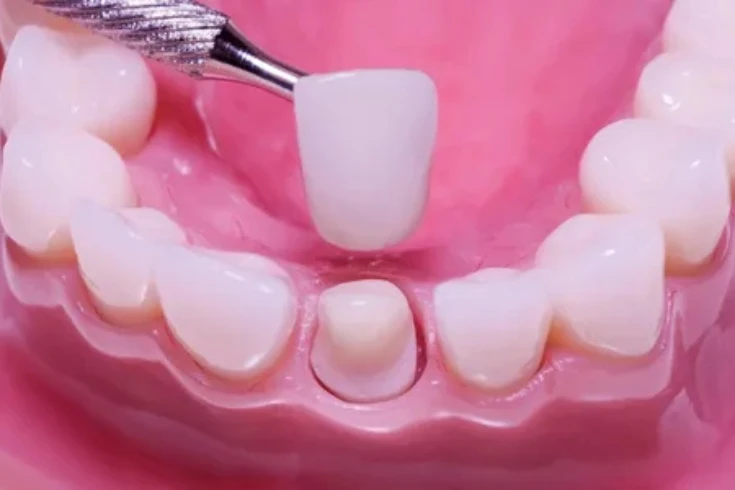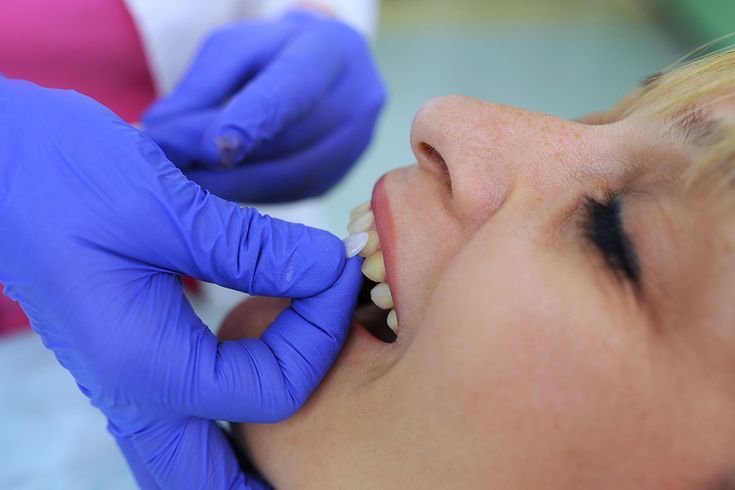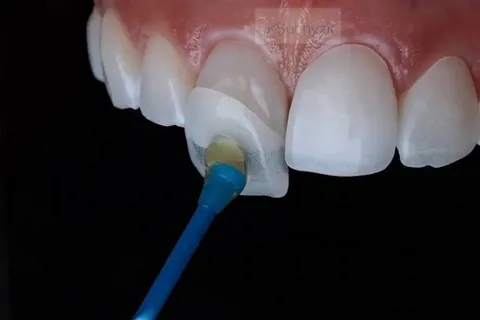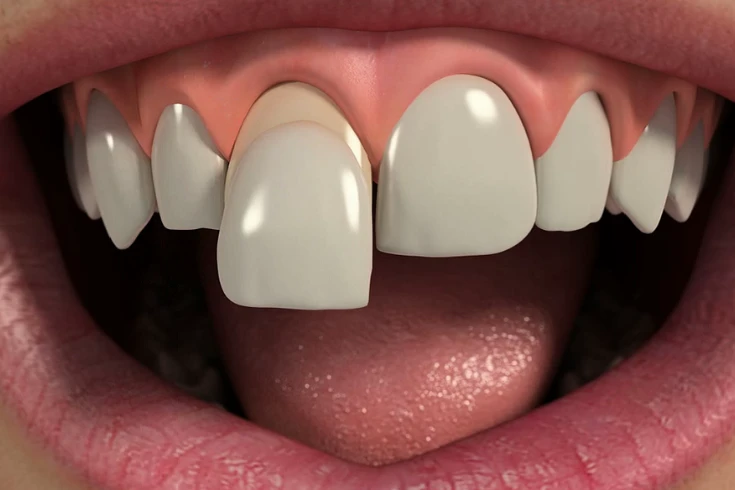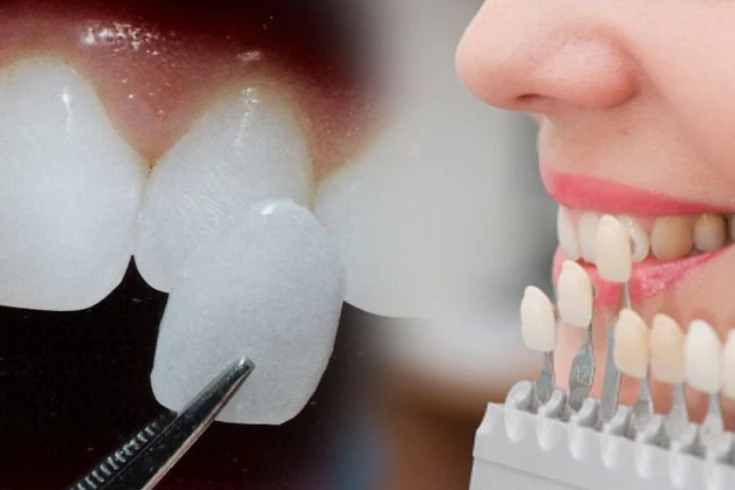A front tooth crown is a dental restoration used to cover or cap a damaged or weakened tooth to restore its appearance, shape, and function. It’s particularly important for front teeth, as they play a significant role in your smile and overall facial aesthetics. If you’re considering a dental crowns on your front teeth, understanding the process, costs, types, and care can help you make an informed decision.
What Is a Front Tooth Crown?
A front tooth crown is a custom-made covering that sits over your natural tooth. It is usually made from materials that mimic the natural appearance of teeth, such as porcelain or ceramic. Crowns for front teeth are designed not only for strength but also to blend seamlessly with your other teeth, giving you a natural smile.
Why Might You Need a Front Tooth Crown?
There are several reasons why you might need it. The reasons are:
- Tooth decay: If the front tooth has a large cavity or extensive decay.
- Cracked or broken tooth: A crown can protect a weakened tooth from further damage.
- Cosmetic reasons: A crown can improve the appearance of teeth which are discolored or misshapen tooth.
- Root canal treatment: After a root canal, a crown is often placed to reinforce the tooth.
Benefits of Getting a Crown for Your Front Tooth
There are several benefits or cons of front teeth crowns. The benefits of getting crown for your front tooth are:
- Enhanced appearance: A front tooth crown can dramatically improve appearance of your front teeth and your smile.
- Durability: Crowns protect your tooth from further damage.
- Improved functionality: It restores the ability to bite and chew properly.
- Tooth protection: Crowns help preserve the remaining tooth structure, avoiding further complications.
Tooth Cap vs. Crown
There is a slight difference between a tooth cap and a crown. Therefore, the following table will show the difference.
| Tooth Cap | Crown |
| Used interchangeably with a crown to restore a tooth’s function and appearance | Restores strength, size, shape, and appearance of a damaged tooth |
| Typically refers to the same materials used for crowns (metal, porcelain, or resin) | Crowns are made from metals, porcelain-fused-to-metal, all-ceramic, or all-resin |
| Commonly used in casual conversation to refer to any tooth-covering restoration | Official dental terminology used by professionals |
| Can refer to any cosmetic restoration, especially one designed to match natural teeth | Specifically designed for both function and aesthetics, often matching tooth color and shape |
| Same as crowns, depends on the material and complexity | Varies by type: porcelain crowns are more expensive than metal or resin |
Types of Front Tooth Crowns
There are several types of front tooth crowns. The following are the types:
- Porcelain Crowns
These are highly popular for front tooth crowns due to their ability to mimic natural tooth enamel. Also, porcelain is translucent, providing a lifelike appearance.
- Ceramic Crowns
Ceramic crowns are similar to porcelain crowns but offer a bit more strength. They are also excellent for front teeth and can be colour-matched for a natural look.
- Zirconia Crowns
Zirconia crowns are stronger and more durable, making them ideal if you need a sturdier crown. They are less likely to chip or break compared to other materials.
- Composite Resin Crowns
These crowns are generally more affordable but not as durable as porcelain or ceramic. However, they can be a good temporary option.
- Metal Crowns (Rare for Front Teeth)
Metal crowns are incredibly strong but rarely used for front teeth due to their metallic appearance. They are typically reserved for molars.
- Temporary vs. Permanent Crowns
Temporary crowns are used while waiting for a permanent crown to be made. They are usually made of acrylic or composite materials.
Getting a Front Tooth Crown Procedure
Following are the procedures for getting a front tooth crown:
- Consultation and Examination
Your dentist will assess your tooth and take X-rays to determine if a crown is the best option.
- Tooth Preparation
The tooth is shaped to make space for the crown. This involves removing some of the enamel.
- Taking Impressions
Impressions of your teeth are taken to create a custom-made crown that fits perfectly.
- Temporary Crown Placement
A temporary crown is placed while your permanent crown is being made.
- Permanent Crown Fitting
Once the permanent crown is ready, your dentist will bond it to your tooth.
Cost of Front Tooth Crowns
There are several factors that can influence the cost of the crowns. Some of the factors that influence the cost are:
- The material of the crown (porcelain, ceramic, zirconia, etc.)
- Geographic location
- Complexity of the procedure
- Dentist’s expertise
- Average Price Range
| Crown Type | Average Price Range (per tooth) |
| Porcelain-fused-to-metal crowns | $500 – $1,500 |
| All-porcelain or all-ceramic crowns | $800 – $3,000 |
| Zirconia crowns | $1,000 – $2,500 |
- Insurance Coverage for front tooth Crown
Most dental insurance plans will cover part of the cost, especially if the crown is deemed medically necessary. However, cosmetic crowns may not be fully covered, so it’s important to check with your provider.
Care and Maintenance of Front Tooth Crowns
- Caring for your front tooth crown is essential to ensure its longevity.
- Daily Care Routine: Brush twice a day and floss daily to keep the crowned tooth clean.
- Foods to Avoid: Avoid hard or sticky foods that can damage or dislodge the crown.
- How Long Do Front Tooth Crowns Last?: With proper care, it can last between 5 to 15 years or longer.
Common Issues and Complications
- While front tooth crown or crowns are typically more durable, you may encounter some issues:
- Sensitivity After Crown Placement: It’s normal to experience some sensitivity, especially to hot or cold temperatures.
- Crown Chipping or Breaking: While strong, crowns can chip or break, especially under excessive force.
- Loose or Dislodged Crowns: Crowns can become loose due to cement failure or trauma.
Alternatives to Front Tooth Crowns
- If you’re unsure about getting a dental crown there are alternatives:
- Dental Veneers: Veneers are thin shells that cover the front surface of the tooth, often used for cosmetic purposes.
- Bonding: Dental bonding involves applying composite resin to the tooth to repair minor damage.
- Dental Implants: In cases where the tooth is severely damaged, a dental implant may be a better option.
Conclusion
A front tooth crown is an excellent option for restoring the appearance and function of a damaged front tooth. Whether you’re concerned about tooth decay, cracks, or simply improving the look of your smile, a dental crown for your front tooth provides a durable and aesthetic solution. With different materials to choose from and options for temporary or permanent crowns, you can work with your dentist to find the best fit for your needs.
FAQs
- What is a front tooth crown?
It is a cap placed over a damaged or weakened tooth to restore its function and appearance.
- Why would I need a crown for my front tooth?
You may need it for your front tooth due to decay, cracks, or for cosmetic reasons.
- What types of crowns are best for front teeth?
Porcelain, ceramic, and zirconia crowns are commonly used for front teeth.
- How is the procedure for getting a front tooth crown done?
The process involves tooth preparation, taking impressions, and fitting a permanent crown.
- How much does a front tooth crown cost?
It ranges from $800 to $3,000 depending on material and location.
- Does getting a crown for a front tooth hurt?
It is typically painless, as local anesthesia is used.
- How long does it take to get a front tooth crown?
It can take 1-2 visits over a few weeks to complete the process.
- Can I eat normally with a front tooth crown?
Yes, but should avoid hard or sticky foods that could damage the crown.
- How long will my front tooth crown last?
With proper care, a crown can last between 5 to 15 years.
- Are there any risks or complications with front tooth crowns?
Common risks include sensitivity, chipping, and loosening of the crown.
- What can I do if my crown chips or becomes loose?
Contact your dentist for repair or replacement.
- What are the alternatives to getting a crown on a front tooth?
There are several alternatives for it. Therefore, alternatives include dental veneers, bonding, or dental implants.
- Can a front tooth crown be whitened?
No, crowns cannot be whitened like natural teeth. Therefore it’s important to choose the right shade initially.

